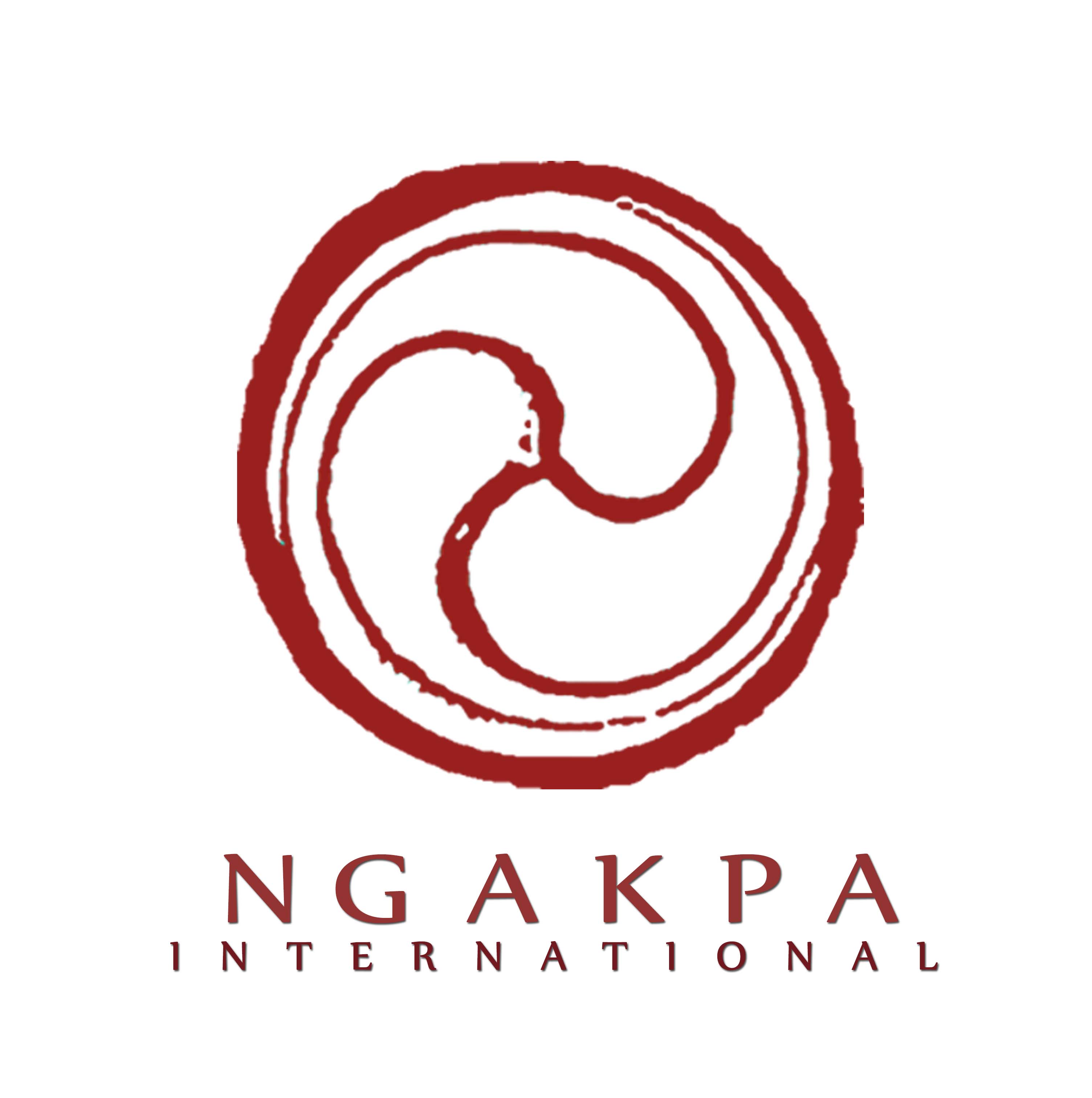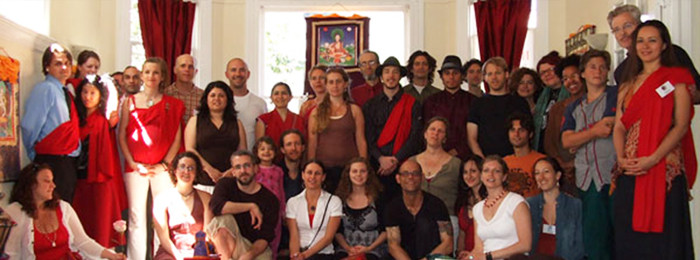Teacher Training
Leadership Training in the Tibetan Yogi Tradition
Buddhist Wisdom in Family, Work, & Society
-
Meditation Instructor Training
-
Group Leader Training
-
Bodhisattva Training
People all over the world have turned to Buddhism as a source of wisdom. Buddhist teachings on compassion and the equality of all people offer a vision of life that is uplifting, purposeful and kind.
The immense resources of Buddhist philosophy offer the higher education that every human being needs – how to work with mind and emotions, tools to question our conditioned scripts, maps for finding deeper resources, a pathway to discovering human goodness, inspiration and integrity.
The Buddhist teachings offer practical tools for finding inner peace and resolving inner turmoil. A well-spring of love, knowledge and practice is found in Buddhism as well as the complexity of a tradition that has existed over twenty-five hundred years and traveled from culture to culture through epic periods of historical transformation.
As Buddhism comes to the West there is an emerging need for quality education in western settings and suitable for western lives. In the information age and in the pluralistic modern context of American life, Buddhism intersects with science, psychology and many other spiritual traditions. Meanwhile simple meditation instruction based on Buddhism is widely available as mindfulness training. This has wet the appetite of many for whom mindfulness meditation has opened up a greater interest in Buddhist practice and philosophy.
In such a context where the appreciation of Buddhism is vast but Buddhist education is hard to find – the vision of Ngakpa International is to provide accessible, in-depth leadership training. Our goal is to offer training in Buddhist philosophy and practice for all levels of study from beginners to advanced students, teachers, and leaders. We based this vision on the tradition of Tibet’s Buddhist Yogis who integrate spiritual development with relationship, work, family, and society. Among our many programs, we are pleased to offer three trainings geared towards leaders:
Meditation Teacher Training
Group Leader Training
Bodhisattva Training
These trainings are offered every two years.
Visit our Upcoming Events for Dates. The following year’s calendar will be announced in December. Sign up for our newsletter to receive an email when the calendar is announced.
Meditation Instructor Training
Get Certified as a Meditation Teacher
The Meditation Instructor Training supplies the fundamental knowledge necessary to lead meditation classes and one-day meditation intensives.
This includes a study of the postures for meditation, breathing techniques, the Six key meditation techniques from Zhine, (also known “Calm Abiding), common obstacles to meditation, remedies for obstacles of meditation and more. We will also review the most important Buddhist teachings to support meditation practice – looking to the wealth of Buddhist philosophy for new perspectives on what is mind, how to work with thoughts and emotions, what is the body-mind connection and how body and mind can be harnessed for awakening.
Click Here for Full Curriculum and Details
The Course Has Ten Modules:
- What is Meditation – Why Meditate?
- Getting to the Root & Finding Meditation in the Present
- Preparation for Practice
- Mastering the Posture
- Setting the Format
- Abiding in Peace and Calm
- Obstacles and Antidotes
- Teaching Methodology
- Instructor Parameters
Course Format
- The Meditation Instructor Training is an online course.
- For upcoming dates – visit our upcoming programs page.
- Classes are led by Pema Khandro and her two senior students, Aruna Rigdzin and Satya Shiva.
Ngakpa Intl. classes vary. Some are study-oriented, some practice-oriented, some community-oriented and some are discussion oriented. We also have classes which are beginner oriented. The tone of these leadership training classes is *practice-oriented and *study-oriented.
Group Leader Training
The Group Leader Training Program serves the need for training leaders who will serve their local communities, to connect them with the tools for meditation practices and for studying fundamental Buddhist views.
Of course, Buddhism is vast. It offers immense resources of contemplation, art, narrative, poetry, ritual, medicine and more. In its traditional setting, training of Tibetan Buddhist teachers is extensive and may take over thirteen years of full-time education or more. The thirteen years is in addition to being raised in Buddhist culture and steeped in Buddhist ritual since birth through exposure to family and society. As a result, there are many extraordinary Lamas who offer empowerments, rituals, and training in their respective lineage. This activity is crucial for the continuation of Tibetan Buddhism. While such intensive training under the direction of Lamas is paramount (and this is what is offered for the Vajra Sangha, Pema Khandro’s personal students) there is also a need for other types of support, especially at the introductory and local levels.
There is a need for local and ongoing support by Group Leaders – for connecting their communities with Buddhism on a more foundational level. The absence of major centers of Buddhist learning in North America and the existence of so few accessible temples and communities places a greater responsibility on local practitioners to organize groups for practice and fostering community connections. In particular – there are few places to practice in the Tibetan Yogi tradition, in which spiritual life is cultivated by work and family.
Because Buddhism is new to the West, and there is great interest in meditation and Buddhist views, local practice communities must provide a gateway and support for those who wish to get to know Buddhism. This is a hallmark of the Buddhist Yogis (ngakpa) tradition, to provide education and support not only for serious practitioners but also for lay people – the general public.
Because our mission as Tibetan Buddhist Yogis is to embody and share Buddhism integrated with family and work life – public classes and local gatherings are an important resource that can be offered to the public. To fill the need which is there and to fulfill our mission of “Buddhist Wisdom for Everyone,” cultivating group leaders is necessary. Through leadership on the part of individual practitioners, Buddhist foundations can be studied and practiced in local communities, led by community leaders who are seriously engaged in the tradition themselves.
Thus, community leadership by Group Leaders can provide opportunities for encountering Buddhism on a regular basis, getting familiar with practices and principles and getting support to do practices.
Group leaders are needed to lead meditation practices, lead discussion and study groups that focus on Buddhist fundamentals.
________
More Details
- Our classes vary. Some are study-oriented, some practice-oriented, some community-oriented and some are discussion-oriented. We also have classes which are beginner-oriented. The tone of these classes is *study-oriented.”
- Visit our Upcoming Events for Dates
- The following year’s calendar will be announced each December.
- Sign up for our newsletter to receive an email when the calendar is announced.
Bodhisattva Training
This course focuses on cultivating awakened leadership, a mindset where the ends and means are both equally valued, where we can offer our work in the world as loving service that comes from a sense of wholeness and presence rather than from a sense of hectic tension or unconsciousness busy-ness.
Pema Khandro offers this groundbreaking class for leaders, teachers, practitioners, business people, artists, health educators who want to bring that potent ingredient of Buddhist wisdom to the work that they do. It is as practical as it is inspirational, consisting of short lectures, question and answer sessions and heartfelt advice from one of the few female Buddhist leaders and teachers in Tibetan Buddhist history.
Click Here for Full Curriculum and Details
This course is based on the influential Buddhist text, The Bodhisattva’s Way of Life by Shantideva, a fourteenth-century Mahayana Buddhist text focused on putting Buddhism into action through a life of clear intention and altruistic service.
Our classes vary. Some are study-oriented, some practice-oriented, some community-oriented and some are discussion-oriented. We also have classes which are-beginner oriented. The tone of these classes is *discussion-oriented*.
“It’s time for a story of a new kind of hero and heroine. The time has passed for the outdated story of the hero who conquers through aggression and is doomed to be isolated from the people he loves the most. The story of the successful CEO that dies of a stress-induced heart attack at a young age must also become past. It’s time for a new hero story to emerge – a time for a story of a new leadership to emerge. The hero and leader of the future is based on courage, compassion, and connection. It is based on service and vision. It is based on another kind of strength besides aggression – the power of communication and the strength that comes from love and humor.
There are some legends like this in Buddhism, stories of dharma heroes and heroines, who conquered the cause of war altogether by finding impeccable awareness. In these legends, the key was always magic. A secret we have to realize is that this magic isn’t about super-powers – it is the magic of having unrelenting enlightened intent (bodhichitta). This doesn’t have to remain the stuff of legends. This can be the story of a new leadership, a new hero, a new heroine who shows up from the world with a clarity of being that is transformative of itself. The telling of that story is up to us – we must live it and be it in a world that has largely lost sight of skillful means as a possibility. Every person should do what we can to bring whatever rays of sanity we can to dark times. We can’t wait until we are perfect or have more time. We have to act on our most enlightened intentions in our daily life now. There are no small acts. It all adds up. So this way of being is a matter of discipline. It is a discipline of bringing constant vigilance to our actions.
This is the message behind Buddhist teachings on karma, we have to question our motivations and mindsets. Because aggression and compulsive busy-ness that has no vision behind it permeates our cultural mindset, we must be vigilant. We must also be prepared. Our training must be thorough, in-depth and constant, interwoven with our daily lives. We are called to a way of being that is beyond brute force – the path of skillful engagement on the uneasy ground of real-life circumstances. Showing up with the mind bent on awakening to our every day opens up a kind of epic space where we can be heroic.”
~ Pema Khandro
www.PemaKhandro.org


